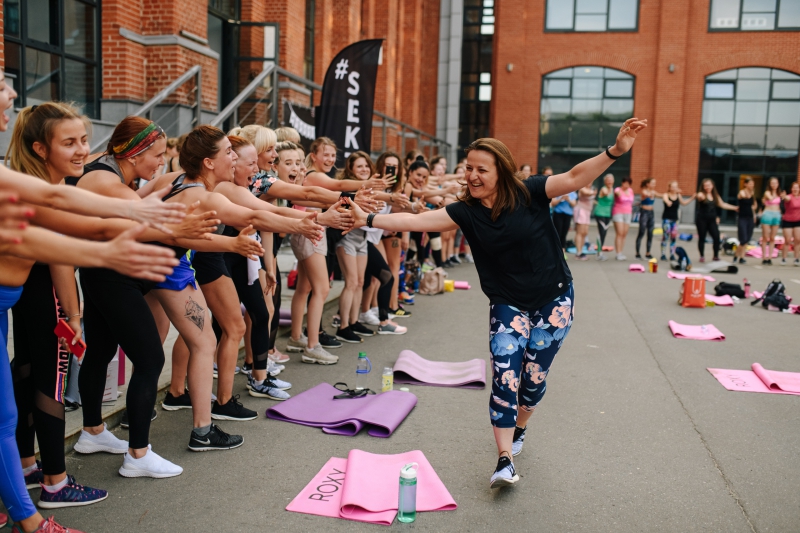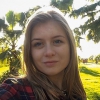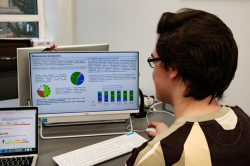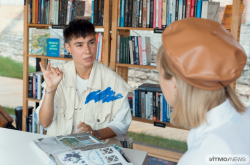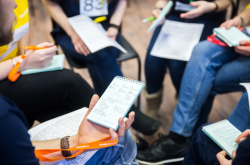Sekta positions itself as a school for ideal body. Why is it called school? What are you teaching?
Sekta is first and foremost a school because we don’t pursue the goal to retain people at our courses by hook or by crook: we have the task of sharing the knowledge we have. We are leading our students and encourage them to adapt the information they receive to their individual circumstances, understanding which methods are applicable to them and which aren’t. We offer our members a specific diet and exercise plan and explain to them why this particular plan will be effective for them.
What is this system like?
This system is actually pretty simple, no magic or potions involved. It’s based on the recommendations of the World Health Organization (WHO). We process the data offered by the WHO and create our own system.
Who is responsible for processing this data?
We have our own research department headed by Lena Degtyar. This project was initiated by her and Masha Kardakova, who sadly doesn’t work with us anymore. Masha and Lena were students at Sekta, and, coming from a scientific background, they decided that Sekta lacks a certain scientific foundation. So they started doing their research, writing materials for the project. At some point, Masha lost her interest in this and moved on, but Lena continues this work as the head. Eventually, the department expanded with people who started helping Lena with writing articles for the school. These are not just people who took courses at Sekta, all of them have a specialized education and write articles on topics relevant to their background.
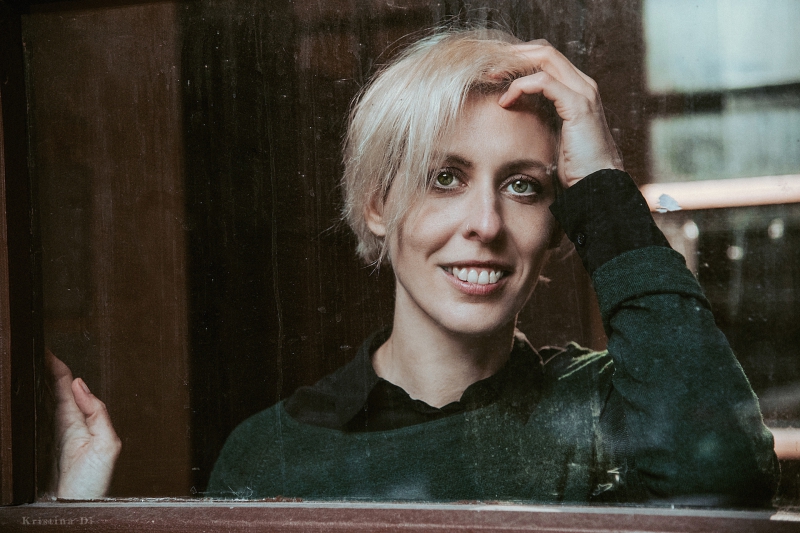
How long did it take you to assemble this team?
As it often happens at Sekta, we don’t actively search for anyone. People just notice that there are niches that need to be explored, they want to share their expertise with others, and this prompts them to come up to us and say, “You know, this and that can be done differently. And you’re wrong on this or that aspect altogether.” We are always hugely enthusiastic to receive such criticism, listen carefully and encourage action. If a person succeeds in proving their mettle, they join our team.
What kind of resources Sekta’s research department resorts to when searching for new publications on a topic?
Usually, they use scientific databases like Google.Scholar or Scopus. Lena Degtyar, the head, favors diverse resources, even if they’re not massively popular. What’s important is for them to have reliable and cohesive information with trackable sources.
Do you approach scientists and medical professionals?
Yes, we do that very often. We even have a kind of scientific staff. For example, we cooperated with midwives and doctors who helped us to develop a program for pregnant women. We also had a project with endocrinologists, which was an entire program on our LITE track. As part of this program, a group of students had their medical samples taken and three endocrinologists used these to develop a bespoke health plan for each of them. It was wonderful to witness the doctors cooperating. On the whole, this turned out to be a very interesting project. One of these students, Masha Voronova, went on to become a coordinator at LITE. Thanks to the knowledge she obtained on this program, which helped her to achieve a better understanding of the specifics of her own body works, she changed her diet to adapt to these specifics and really improved her wellbeing.
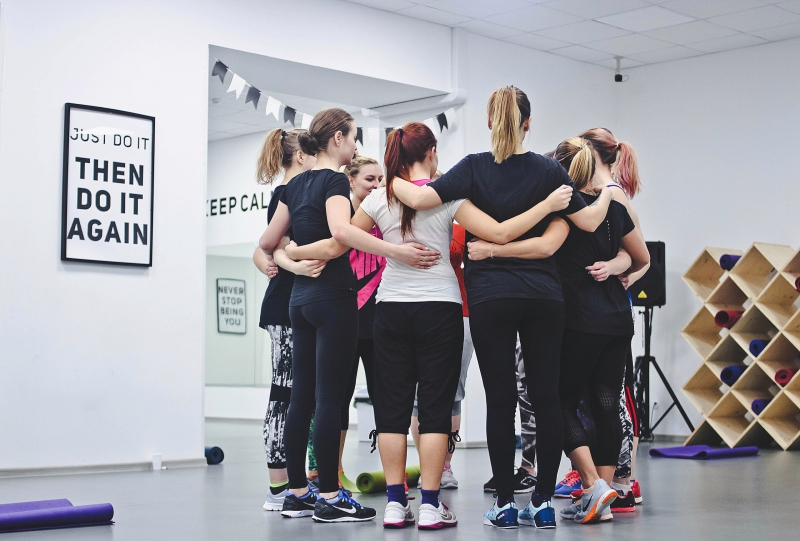
We also collaborated with the company Accu-Chek, which works with people suffering from diabetes; we developed a comprehensive diet and exercise program. But because this is not our own project, we tend to not promote it too much. Nevertheless, our coaching department, which developed it, is really proud of how it turned out.
So you have a coaching department and a research department. How do they interact?
These departments work independently of each other. The research department usually deals with all matters of nutrition, creating content for the school’s website. The coaching department also writes articles for the website, but these focus on exercise. Our coaching department staff, Rita Popova and Dasha Knyazeva, are experts specializing in the field of physical education and sports. They regularly partake in relevant workshops and webinars, attend various conferences. They process information they obtain there through the prism of their own experience and communicate it to students and program coordinators.
Are all these events your staff attend scientific?
The conferences we participate in aren’t scientific in the classical sense of this word. They are more about the exchange of experience: about best practices developed by individual professionals. Oftentimes, and very unfortunately, these conferences turn into some sort of a market where each speaker is trying to sell you something. Of course, we would like to participate in more science-intensive and high-quality events, but these aren’t that easy to find.
Do you cooperate with any research or educational organizations?
Our global mission at Sekta is to break through into general secondary education. We are often approached by students who hate everything that has to do with exercise and fitness because the school prompted them to with its generalized approach that doesn’t allow for their individual circumstances and preferences. Everyone is subject to similar requirements and standards, and this is wrong. The same with nutrition: the school doesn’t teach us what to eat and how the food impacts our body. It’s good if parents strive to nurture the right kind of relationship with food in their kids, but this is very rare. “Just eat,” we are told, “and don’t you leave the table until you’ve eaten everything.” Yet the foundations of nutrition have to be promoted from very early on.
Right now, we are working on a project with schools. We create guides for PE teachers, so that they could take these as a basis for their lessons. For example, a “Warm-Up” guide tells you how best to prepare your muscles for a workout. Likewise, there are guides on specific kind of workouts that offer alternative options for people with different fitness levels. All these workouts have been developed by our coaching department, and then optimized by our designer to make them more convenient to use. I have also participated in this process, being featured in video demonstrations of these workouts. These guides are our gateway into schools.
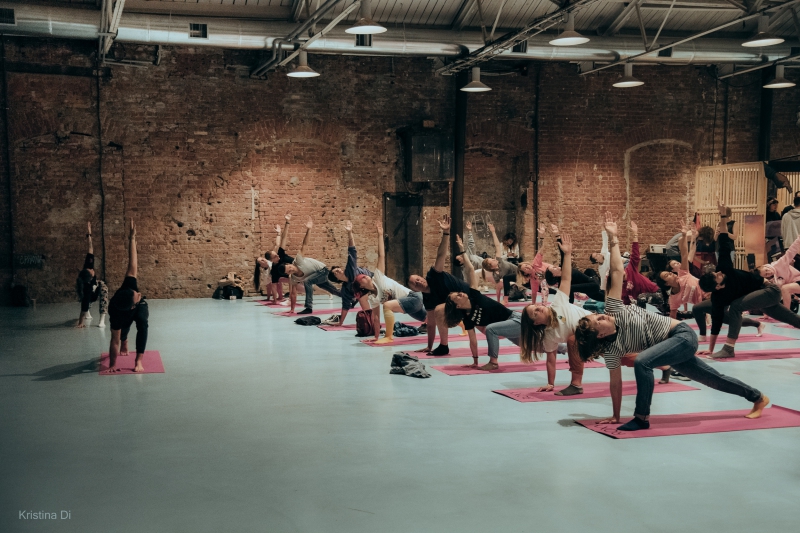
To confidently integrate our experience into the general education system, we have to have a certain academic foundation, and this is something our staff member Olya Markes is focusing on. She’s currently doing her PhD, and her thesis revolves around #Sekta. There, she supports our philosophy with science, proving its effectiveness with specific cases from our practice. We consider this a step towards building trust with schools and authorities responsible for the development of the secondary level of education.
Much is being said and written nowadays about healthy lifestyle and healthy eating. How to not get lost in this avalanche of information and discern truth from myth?
Indeed, there is a lot of information out there. But the situation with its reliability is much better now than it was a couple of years ago. The range of topics is pretty much the same among different magazines, and they tend to present information that is more or less adequate. Why more or less, what am I basing my conclusions on? On what our school draws on: the materials generated by our research department. Lena Degtyar and her team go off of the articles that are penned not by different journalists and bloggers but by researchers, medical professionals, nutritionists, dieticians, and other specialists whose activities pertain to the field of healthy living; they also refer to materials published by the Ministry of Health. They process all this body of data and customize it for readers. All our articles can be found on the website Sektascience.com. The service is absolutely free, and you can be sure that all information there is fully reliable.
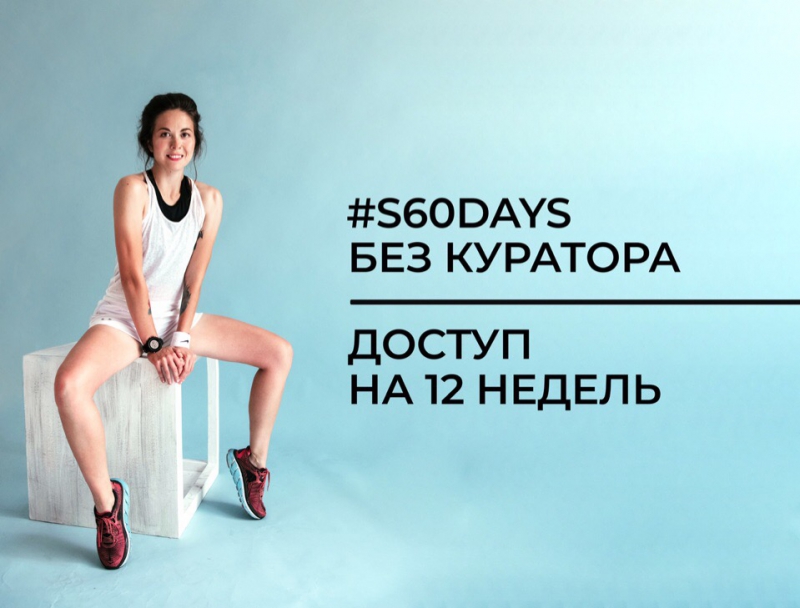
In general, you always have to be critical towards information published in magazines and on websites. It’s always good to check if an article contains direct references to specific research papers. This check only takes a couple of minutes and allows you to ascertain whether the information you are being given is substantiated or not.
